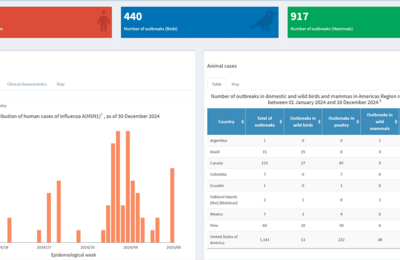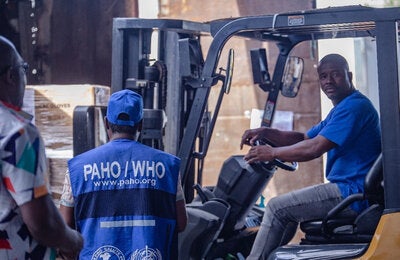
Rome, September 27 (PAHO) – In an address to the 2021 Pontifical Academy for Life, the Director of the Pan American Health Organization (PAHO) Dr. Carissa F. Etienne stressed how pre-pandemic deficiencies fueled the spread of COVID-19 in the Americas and emphasized the need for greater leadership and solidarity towards universal health goals that “leave no-one behind.”
Dr. Etienne delivered her remarks at a Monday workshop during the Pontifical Academy for Life Assembly, taking place virtually 27-29 September. The Vatican-led event brought together scholars and experts to discuss the challenge the pandemic poses in reaching a more equitable distribution of health care around the world, under the theme “Public Health in Global Perspective. Pandemic, Bioethics, Future.”
The challenges that all our countries have faced in responding to COVID-19 are a consequence of persistent inequity and social injustice, long-term structural deficiencies in the health sector, years of inadequate attention and public investment in health, and lack of preparedness and leadership,” Dr. Etienne said in her remarks at the workshop.
Closing the health care gaps exposed and magnified by COVID-19 would require “a major shift in how we envision health and wellbeing”, she continued, to “where universal access to health becomes a prerequisite for national and global health security and development.”
She called for commitment from all countries and stakeholders, including faith leaders and their communities, towards achieving the goals of Universal Access to Care and Universal Health Coverage and the “right to access comprehensive, quality, and integrated health services, without incurring financial hardship.”
She drew attention to the low spending on public health in countries in the Americas – which average at 3.7% of GDP, far below PAHO’s recommended 6% of GDP – and emphasized the need for investment in primary health care, “where 70% of health needs of the population can be successfully addressed.”
These deficiencies and inequalities have exacerbated the effects of the pandemic, Dr. Etienne said, and as a result the region has been disproportionately affected by COVID-19, accounting for 46% of all deaths globally.
She highlighted a path to recovery that includes concerted action to maintain surge capacity in health systems and services to tackle COVID-19 while addressing other priority health needs, and to ensure more equitable access to safe and effective vaccines.
“An average thirty percent of the population in the region are fully vaccinated against COVID-19,” Dr Etienne said, “but this average hides the disparity in coverage where some countries have already achieved 70% while others are below 10% coverage, and three countries in the region are still in single digits.”
COVID-19 vaccines must be made available to less-well off nations, Dr. Etienne reiterated, “and solidarity-based mechanisms such as COVAX must be supported not just with offers of financing from countries, but with concrete and sustained commitments.”



